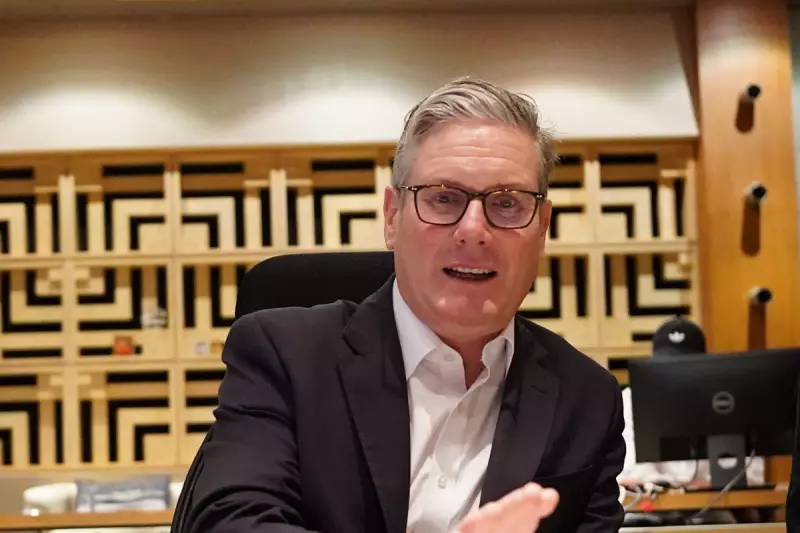
In a significant move that signals Britain's future economic direction, Labour leader Sir Keir Starmer has touched down in Mumbai for a high-stakes trade mission that could redefine UK-India relations. The strategically timed visit comes as Starmer positions himself as Britain's next Prime Minister-in-waiting, with polls consistently placing Labour far ahead of the ruling Conservatives.
Building Bridges in Britain's Economic Future
The opposition leader's Mumbai agenda is packed with high-level meetings with Indian business leaders and political figures, focusing on strengthening trade links between the two nations. This diplomatic offensive represents Starmer's commitment to building what he describes as "a new strategic partnership" that could prove vital for Britain's economic prosperity.
Speaking ahead of his engagements, Starmer emphasised that his visit wasn't merely symbolic but represented a concrete step toward establishing "the building blocks of what could be a very different relationship" between the UK and India under a potential Labour government.
A Strategic Shift in Global Positioning
Political analysts view this Mumbai mission as particularly significant given the current government's struggles to establish substantial post-Brexit trade agreements. Starmer's team has clearly identified India as a priority relationship that requires renewed attention and diplomatic investment.
The Labour leader's approach appears calculated to demonstrate his readiness for international statesmanship and his party's serious commitment to global trade relationships. With the Indian economy experiencing remarkable growth, Starmer recognises the immense potential for British businesses in sectors ranging from technology to renewable energy.
Laying Groundwork for Future Governance
This isn't merely an opposition leader's fact-finding tour; it's a carefully orchestrated demonstration of Labour's preparedness to govern. The Mumbai meetings are designed to establish personal relationships and policy understandings that could be activated immediately should Labour secure victory in the upcoming general election.
Starmer's delegation includes shadow ministers and trade experts, indicating the seriousness with which Labour is approaching this economic diplomacy. The message to both British and Indian audiences is clear: Labour is ready to hit the ground running on international trade from day one of forming a government.
Beyond Symbolism: Concrete Economic Objectives
While the political symbolism of Starmer's Mumbai presence is undeniable, the mission carries substantial economic objectives. India represents one of the world's fastest-growing major economies, and securing favourable trade terms could provide a significant boost to UK businesses across multiple sectors.
The Labour leader's focus on this relationship suggests a strategic understanding that Britain's future economic success depends heavily on forging strong partnerships with emerging economic powerhouses, moving beyond traditional European markets that have dominated UK trade policy for decades.





